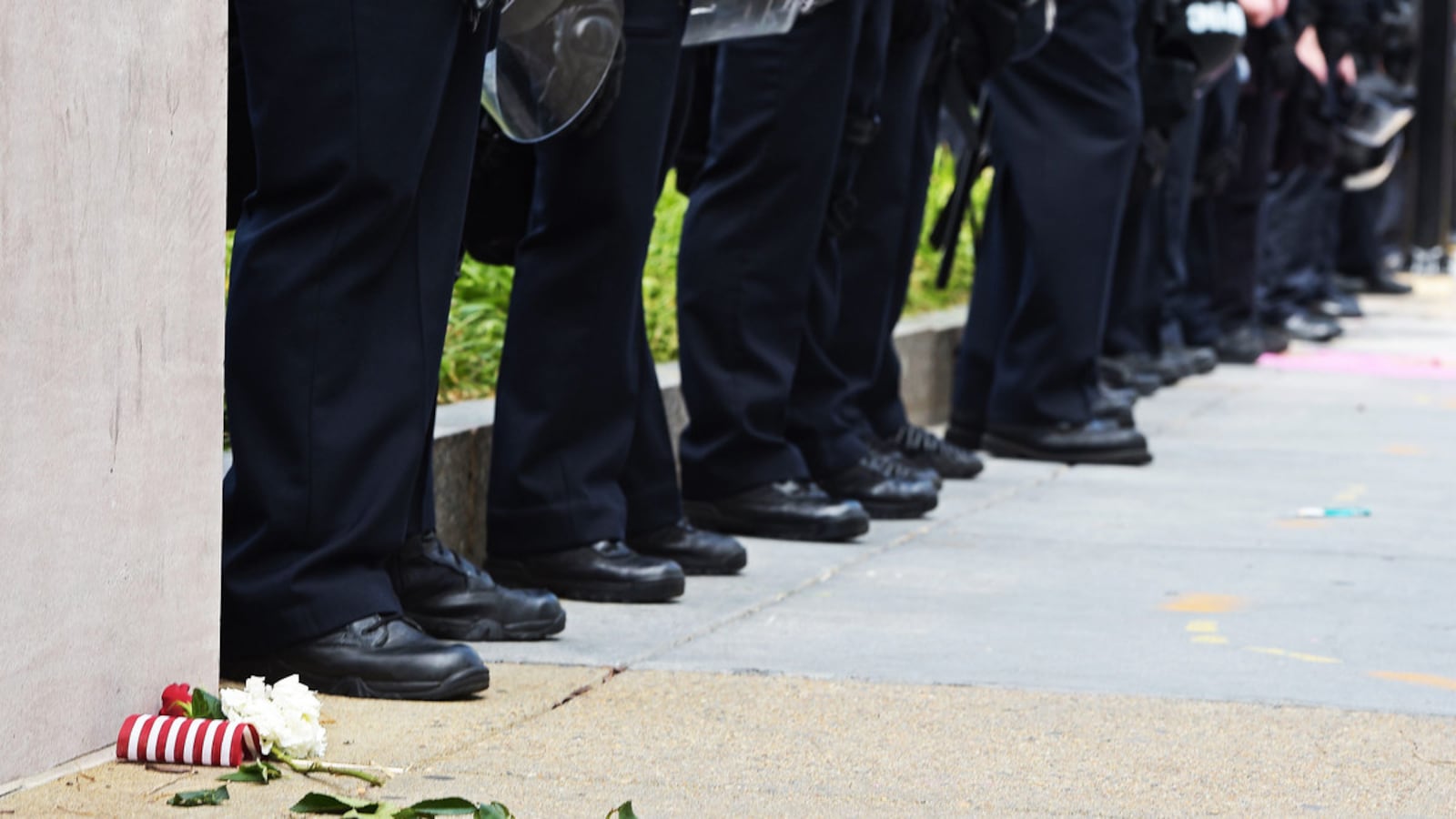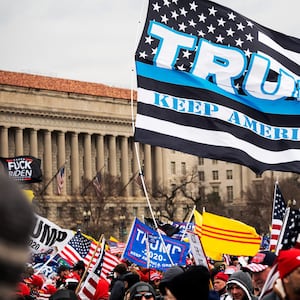The prosecutions of the Capitol rioters—including the person or persons who murdered Capitol Police Officer Brian Sicknick by bludgeoning him with a fire extinguisher—need to be immunized against Trump’s pardon power through joint local and federal prosecutions.
While it’s a no-brainer that the rioters committed federal crimes–they were on federal property assaulting federal officers—it’s also a no-brainer that Trump has no qualms against pardoning those who commit violent crimes, including murder. His recent pardon of the Blackwater contractors who had been convicted of murdering unarmed civilians in Iraq makes this plain.
But Trump’s pardon power extends only to federal crimes, which is why these cases need to be brought jointly with local jurisdictions like the District of Columbia, as well as nearby Virginia and Maryland, where many of the rioters may have been staying, as well as the home states of rioters farther away from D.C.
Serious crimes in D.C. are prosecuted by the U.S. Department of Justice via the U.S. Attorney’s Office for D.C., which has unique primary jurisdiction for prosecuting local crimes there, from arrests of protesters to murder. But the investigations for these prosecutions are commonly done by D.C. MPD alone or working with federal law enforcement. Already, news reports indicate that the investigation into Sicknick’s murder is being worked by D.C. Homicide, the FBI, and Capitol Police. The investigation work being done now will yield witnesses and massive amounts of video evidence, all of which will be ultimately presented to a grand jury to bring indictments. And here is where it gets interesting.
Unlike most federal prosecutors, the U.S. Attorney in D.C. can bring cases in either federal or local courts and can utilize both federal criminal laws as well as local D.C. laws. So an early question for prosecutors will be whether to utilize a local or federal grand jury and whether to bring local or federal charges.
They should utilize a federal grand jury and bring both local and state charges. Bringing D.C. charges like murder, manslaughter, assault on a police officer will allow some legal defense against Trump’s ability to pardon the charges since some of them will arguably not be federal crimes but D.C. crimes. Like the ongoing investigations into Trump by the Manhattan district attorney and the New York state attorney general—cases which will survive any presidential pardons—well-constructed D.C. charges could also survive Trump’s abusive use of the federal pardon power.
But that survivability is not assured because even when criminal cases are brought under D.C. law, it is still the federal government prosecuting them. So this strategy—after likely being litigated all the way to the U.S. Supreme Court—might ultimately fail.
What will not fail, however, are pure local and state crimes brought by local and state prosecutors. Thus, the local D.C. Attorney General’s Office could bring charges such as weapons offenses and disorderly conduct while Virginia, Maryland, and maybe even the home states of the rioters could bring charges like conspiracy to riot, commit assault, destruction of property, assault, use of explosives and the like. Normally, such potentially redundant charges would not be a good use of D.C., state, and federal resources but this was not a “normal” event.
The assault on the Capitol on the very day that Congress was certifying the results of America’s national election was more than a breach of the Capitol building grounds. It was an assault on the heart of our democratic processes that destroyed symbols of our country and resulted in the deaths of five citizens. A national joint effort of local, state, and federal authorities is required to do justice in these cases—and to protect that justice from the abusive power of a president run amok.






